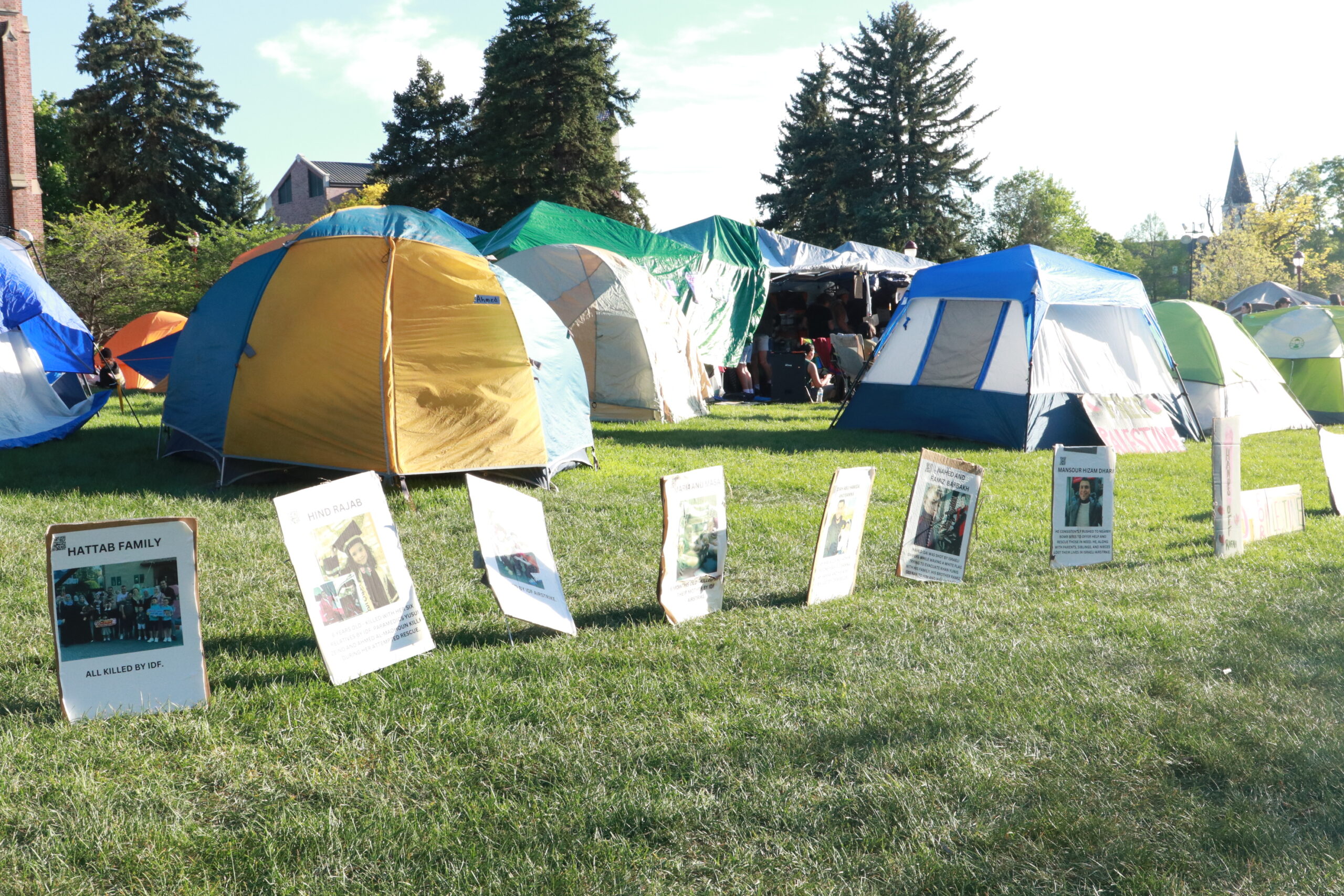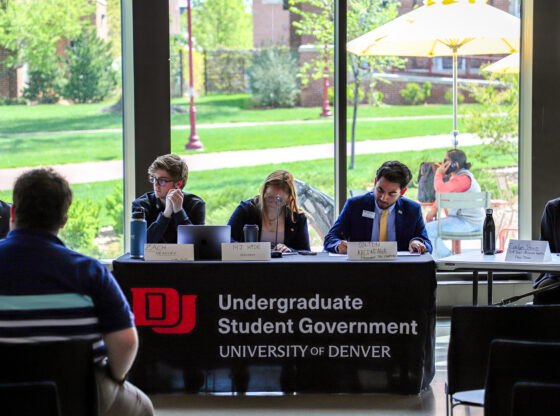On Sept. 23, the University of Denver community gathered in Davis Auditorium for a new event, The Relay. Students, staff, faculty and administrators were all in attendance for a presentation from university leaders on the future of DU. The backdrop was DU Impact 2025, the university’s strategic plan.
The event was called to order by Corinne Lengsfeld, the interim provost and executive vice chancellor. Lengsfeld set the tone of the event, stating “This is a year of transition for all of us.” She continued by explaining that this new event served as a forum for the university’s leaders to connect with the university community.
Lengsfeld is no stranger to DU; she’s been here for 20 years, serving in a variety of positions from professor of engineering, to the senior vice provost for research and graduate education. She is excited about her new role as interim provost. “I believe in the value of listening,” she said. “I want to be the face for stability in this time of transition.” Her goal is to focus on the local environment, she said “we need to raise the level of recognition that DU gets.” When it comes to the budget, she is sensitive about tuition. Finishing her remarks, Lengsfeld said “I want to move from beliefs to habits.”
The first speaker was Darrin Hicks, an associate professor of communications in the College of Arts, Humanities and Social Sciences, and the president of the Faculty Senate. Hicks began his remarks with an explanation of what the faculty Senate does, he stated “the faculty Senate embodies a shared governance model, we advocate for administrative accountability while helping develop policies and procedures for university.” Hicks went on to speak about the goals of the Senate for this coming year which include discussions about pay equity, the cost of living, the development of curriculum and making the Senate more accessible.
The next speaker was Garret Glass, the assistant director of production services at the Newman Center for Performing Arts, and the president of the Staff Advisory Council. Glass said that “we are working on achieving great things for the university.” He commented on the Staff Advisory Councils’ efforts to strengthen community partnerships by giving faculty and staff the appreciation they deserve.
Student leaders in attendance also spoke. Rode Molla, president of the Graduate Student Government spoke about the GSG’s strategic action plan; including increased student engagement and supporting long term growth. Matt Walter, president of the Undergraduate Student Government, spoke about building and sustaining relationships within campus organizations and student life that can be passed down to future presidents. They both spoke about their goals to make the DU campus a more engaging environment.
Art Jones then took a turn at the podium. Jones has been at DU for the last 27 years formerly serving as the associate dean of the Women’s College. Jones retired last year but returned to DU to serve as interim vice chancellor of diversity and inclusion. Jones, in keeping with the theme of transition, spoke about how he wants to use his time before “retiring for real” to really impact the culture at DU in a way his new position is uniquely able to do. He wants to see better recruitment of both students and staff of color.
The event concluded with Chancellor Jeremy Haefner. He described his vision and mission for DU and spoke about DU Impact 2025. He stressed his commitment to the students, faculty and staff, “we are going to leverage what we are doing well; with the things we need to do better.” He talked about the ever-changing landscape of higher education, he commented that the world is changing and we have to change with it. Concluding his presentation, Haefner said “Our future is bright and together our opportunities are endless.”











